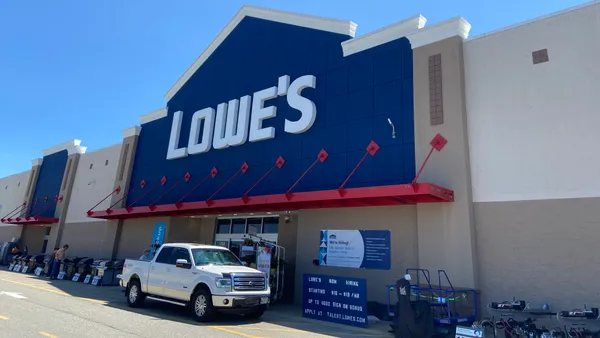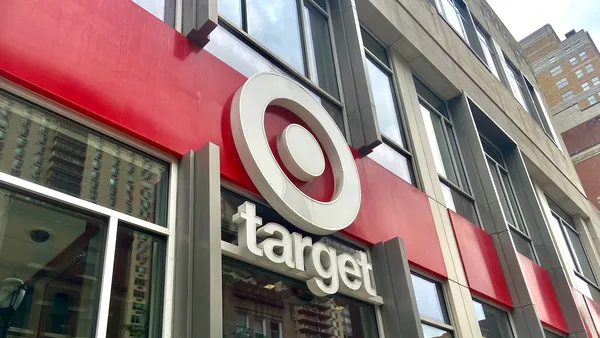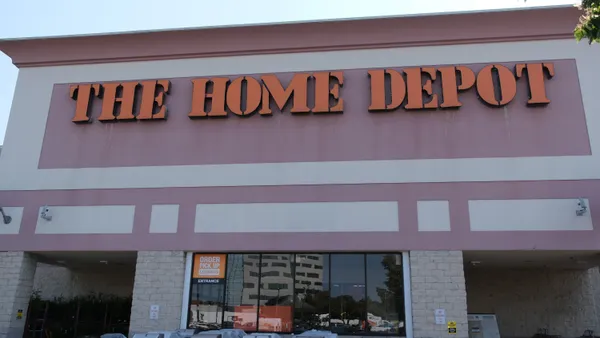Dive Brief:
-
Gap, Inc. is shutting down its relatively new Hill City men's athletics brand, according to an Instagram post Hill City published on Friday, as well as a blog post from Gap, Inc. The brand will shutter "over the course of the year," but will still be restocking some popular styles and dropping new ones until that time.
-
"We are living in unprecedented times with unprecedented consequences, forcing us all to make and face tough calls," the brand said in its post. Gap, Inc. noted in its release that it will be using Hill City's "styles, fits, and innovation" for future men's lines at other brands, beginning with Banana Republic.
-
Hill City was launched in October of 2018, as the first new brand Gap had launched in over a decade, and replicated the company's successful Athleta brand in many ways.
Dive Insight:
Gap is taking a step back from the athleisure market, shuttering its two year-old men's athletics brand Hill City during a crisis that has caused many retailers to take a closer look at their businesses.
The brand was intended to build off of the success Gap had seen from its women's athleisure brand, Athleta. Last year, Athleta Chief Marketing Officer Sheila Shekar Pollak told Retail Dive the company had received feedback "for years" from its customers asking for a men's assortment. That culminated in the launch of Hill City, which was intentionally created as a separate brand, rather than being folded in under the Athleta banner.
Pollak said that was because Athleta wanted to remain a brand that "uniquely delivers for women and girls." Launching a new brand, though, and doing so successfully, is no easy feat. It means building a new follower base, and while Hill City used the success of Athleta to help build brand awareness for the new company, it may not have had enough to survive on its own when the coronavirus outbreak hit.
Noah Palmer, the head of the Hill City brand, noted in October that customers had expressed interest in purchasing Hill City products at the Athleta stores they were being displayed in, which led to the decision to sell its products in seven Athleta locations. Now, however, the pandemic has kept retailers' doors closed for months, limiting sales to the online channel. That's been good for some well-positioned DTC brands, but for players like Gap, which were struggling on a few fronts before the coronavirus outbreak, it's led to the need to take more drastic measures.
The first quarter was not kind to Gap. The company's net sales plummeted 43%, and the retailer recorded a net loss of $932 million and an operating loss of $1.2 billion. The retailer also hinted at store closures, saying it will likely close some stores in areas where leases cannot be successfully renegotiated. It's possible Hill City would have had more time to find its footing if the pandemic had not hit, which was pointed to by a Gap, Inc. spokesperson as the reason for the closure.
"The brand launched in 2018 and explored new ways of working for the company with an online-only model, all while delivering high quality apparel that customers loved," a spokesperson told Retail Dive via email. "While the business is performing well, the financial impacts of COVID-19 have required the company to ruthlessly prioritize and reduce operating expenses. We will apply best learnings, talent, styles and innovation from the brand to our other brands as athleisure continues to grow."
While the athleisure space has largely been a boon for athletics retailers, Gap isn't the only one to struggle with how to translate success in the women's space to success in the men's. Lululemon, arguably one of the founders of the athleisure movement, has had its own stumbles building a men's business. While the company plans to double its men's business by 2023, and has talked often of the success it's seeing in the space, the retailer also made the decision to shutter its men's-only stores last year, opting instead for a "co-located strategy."












